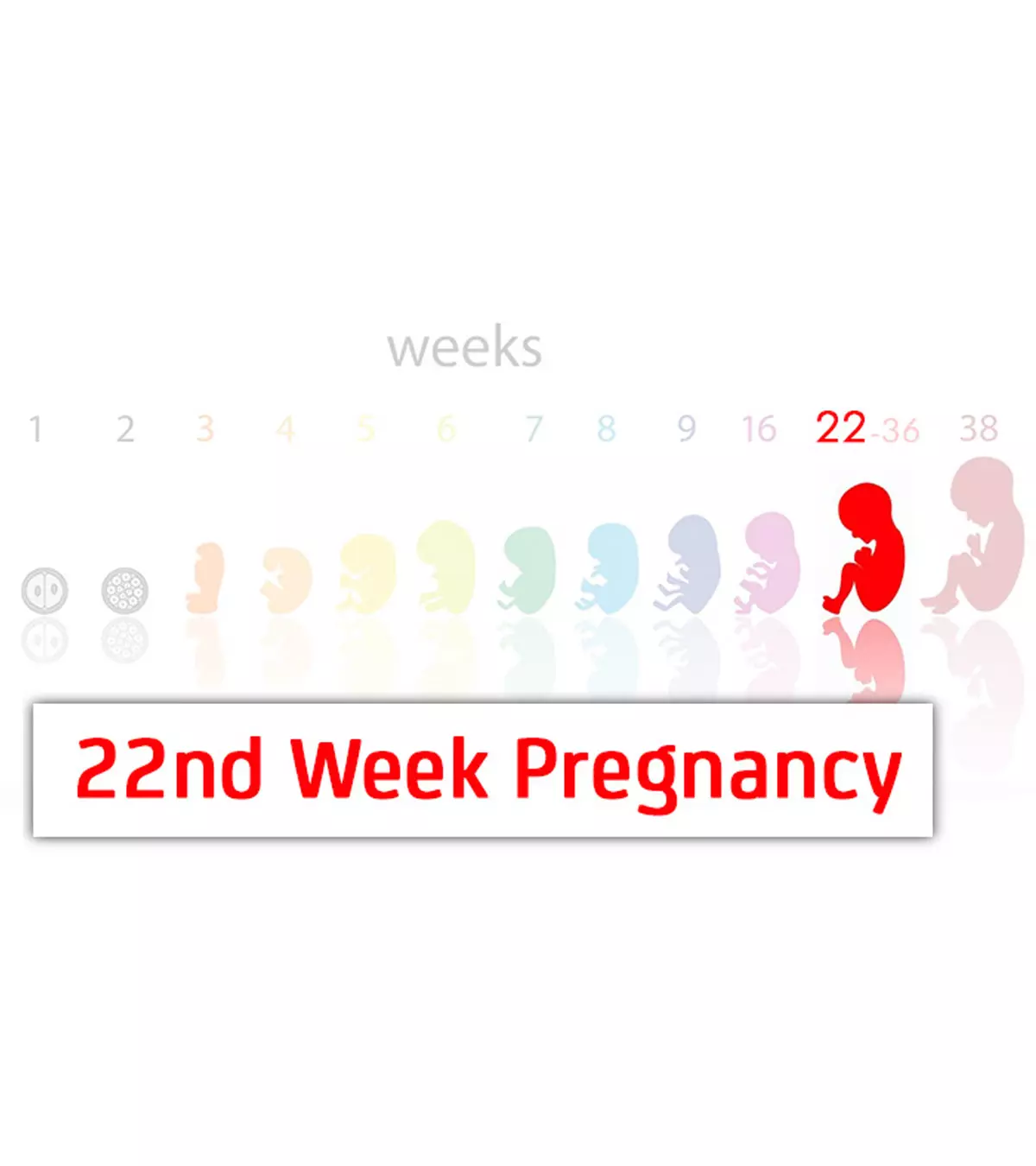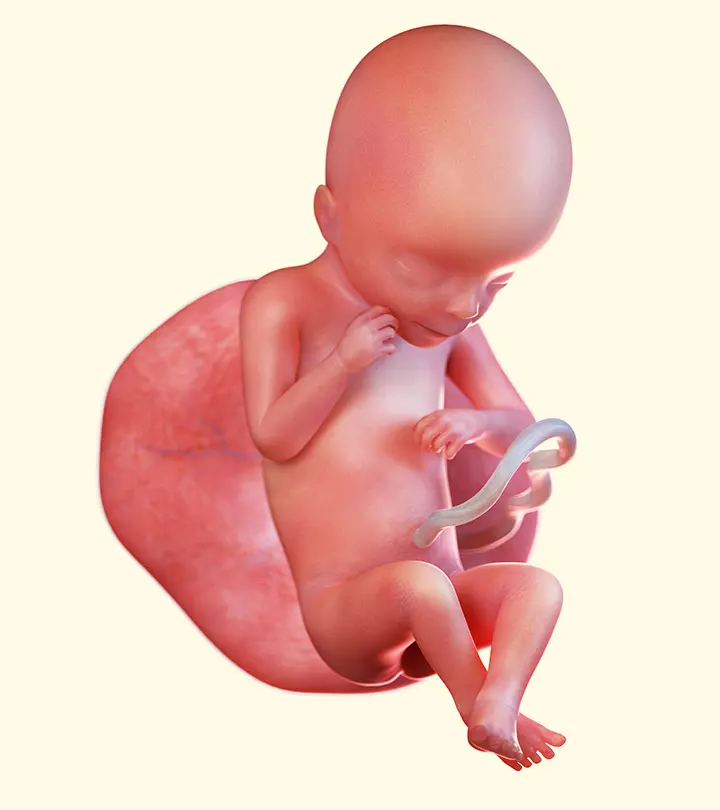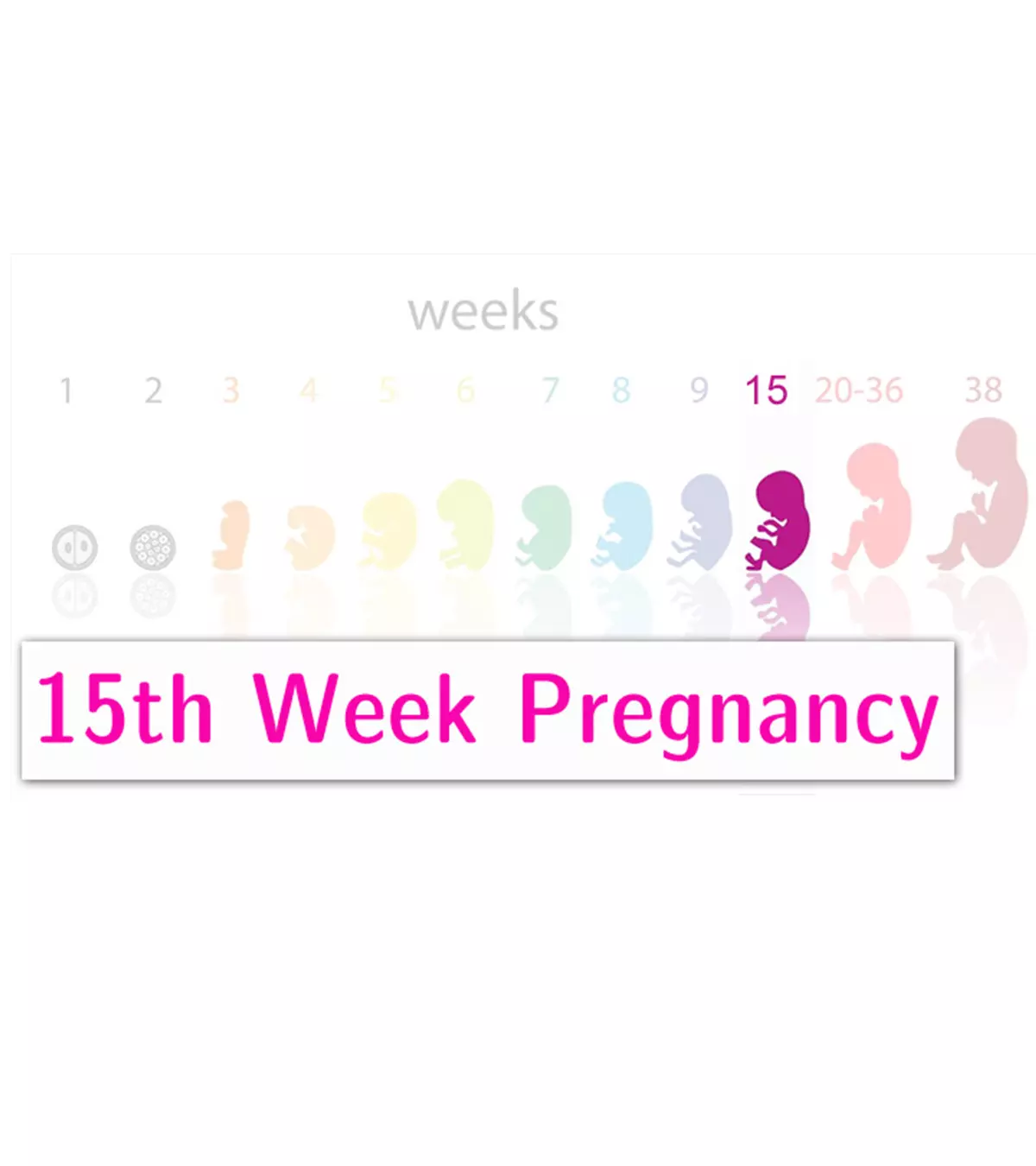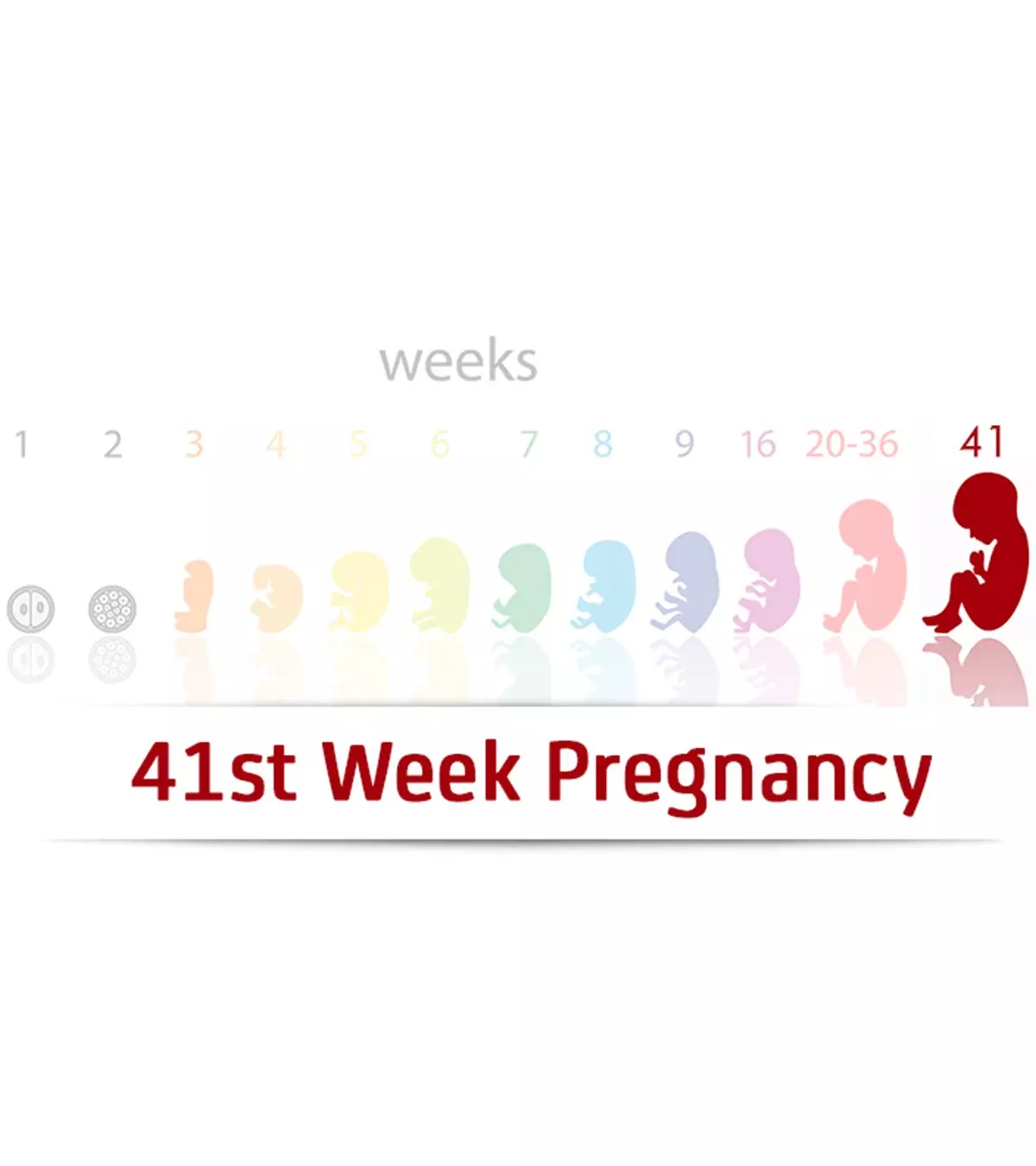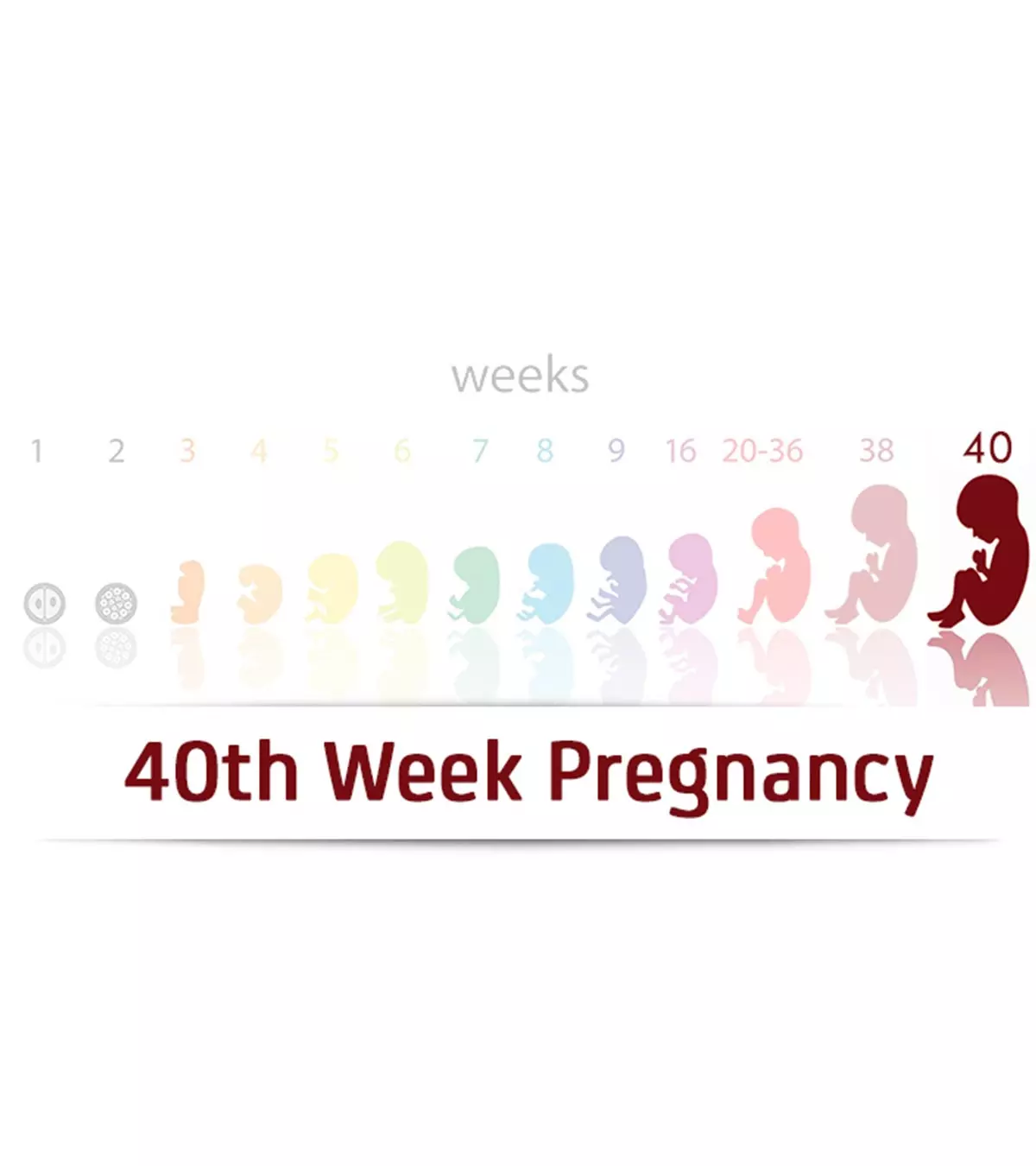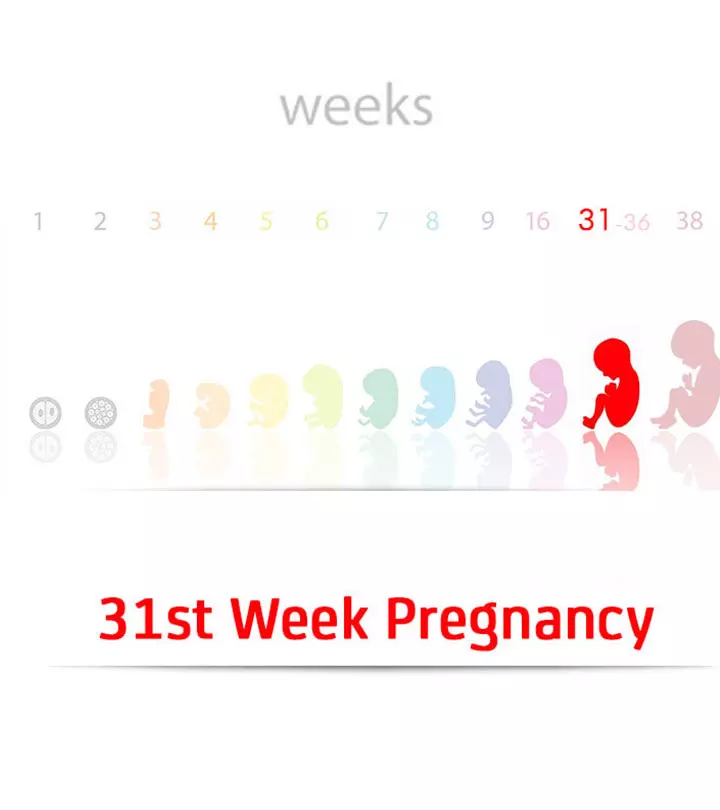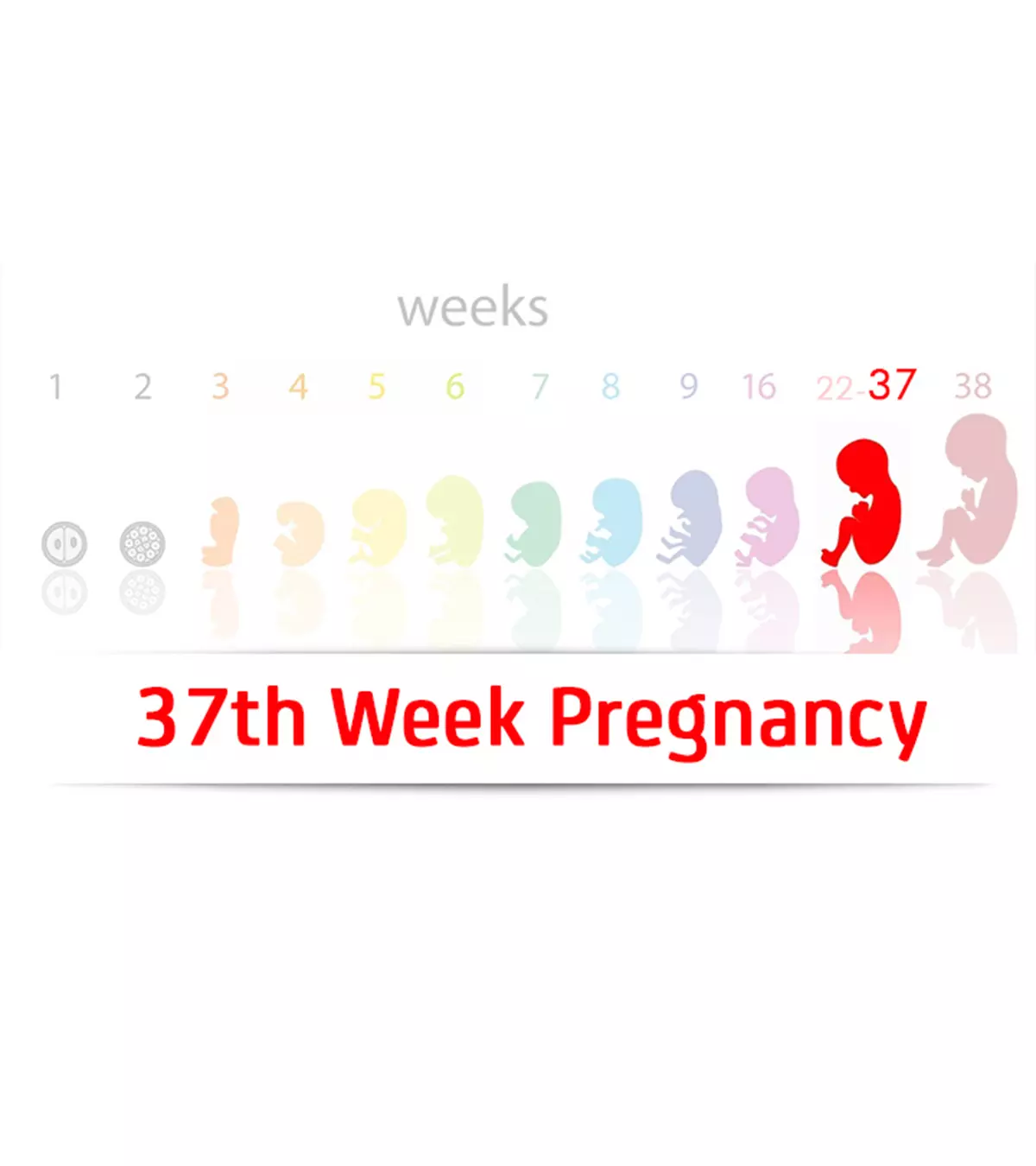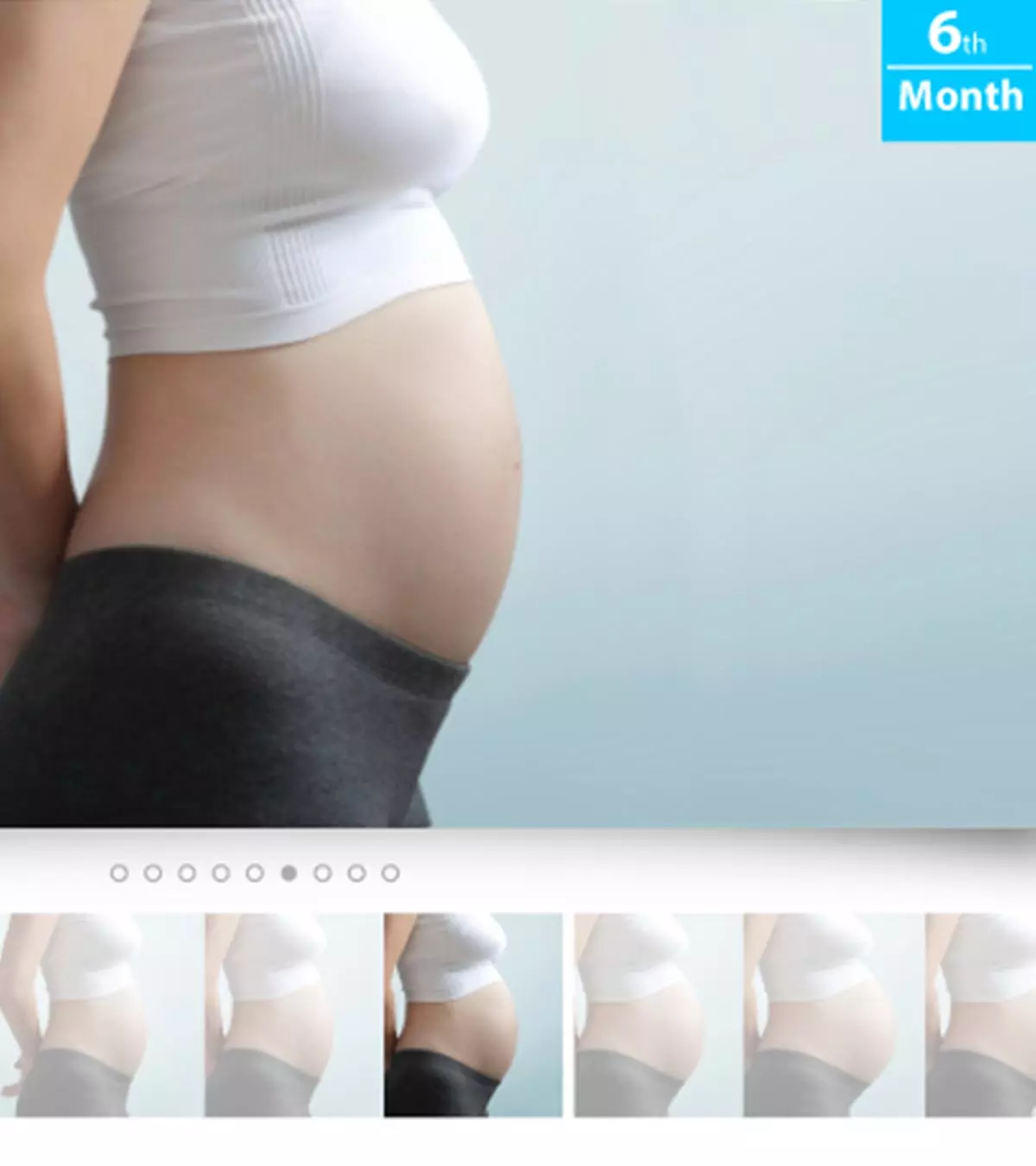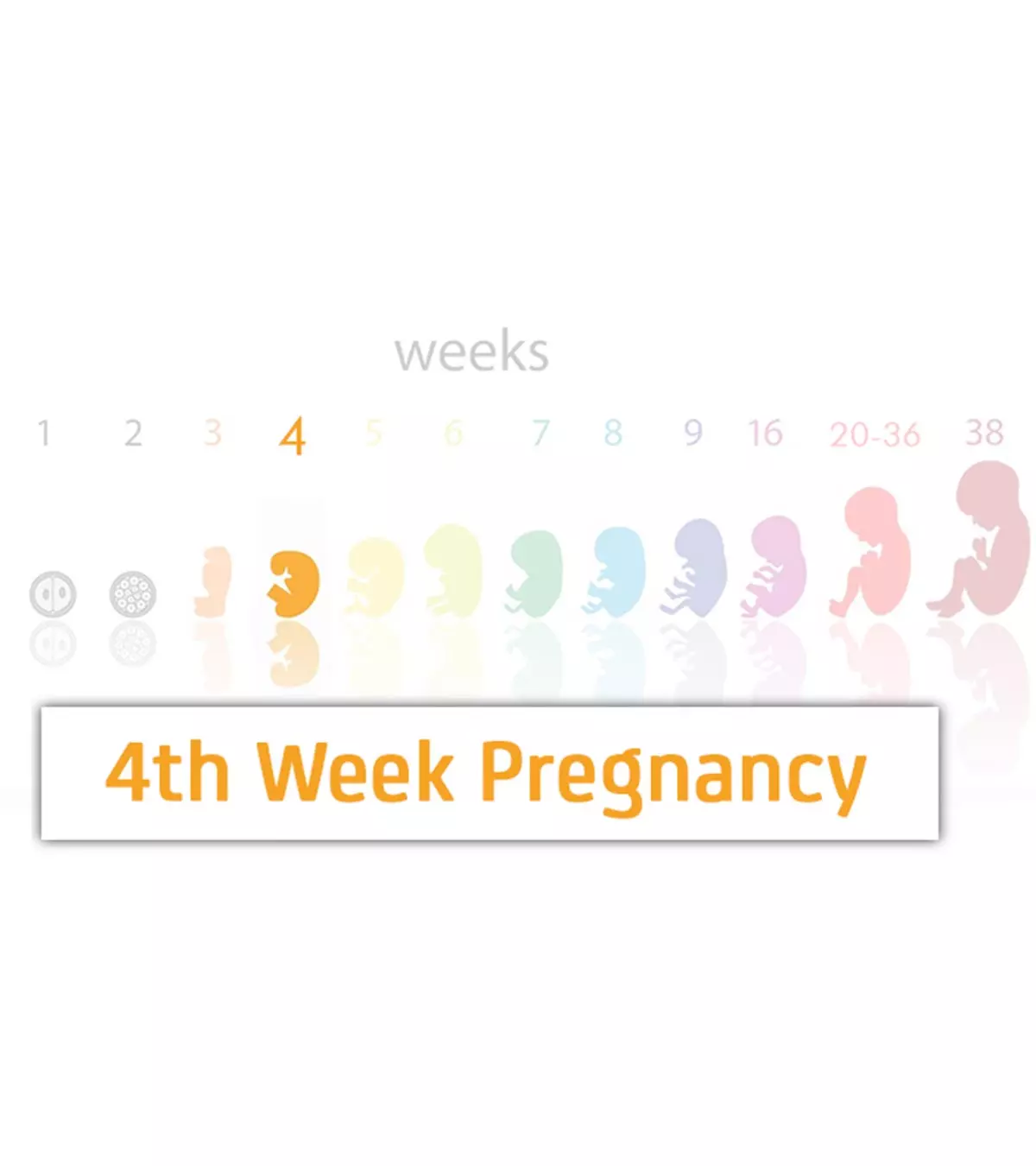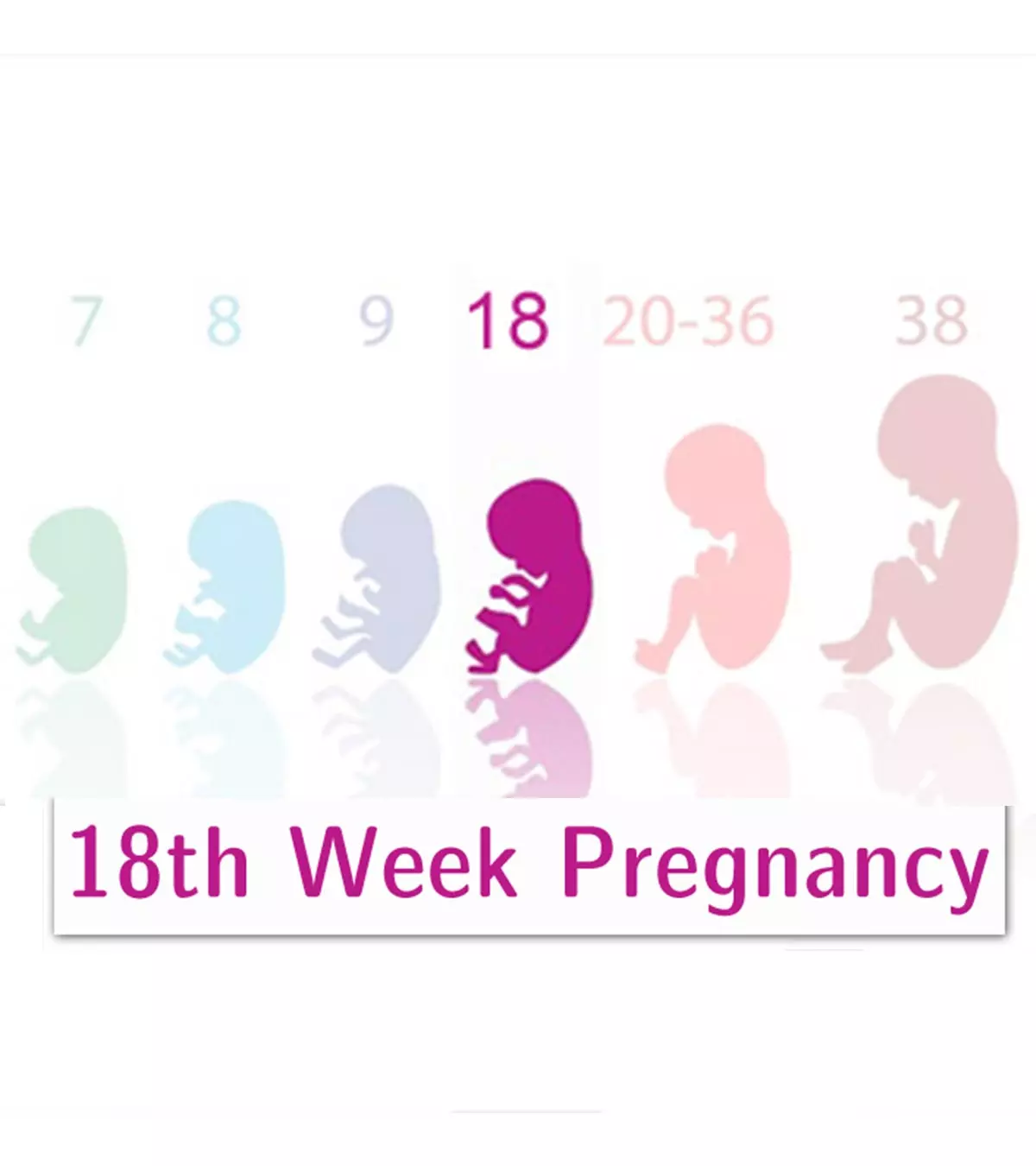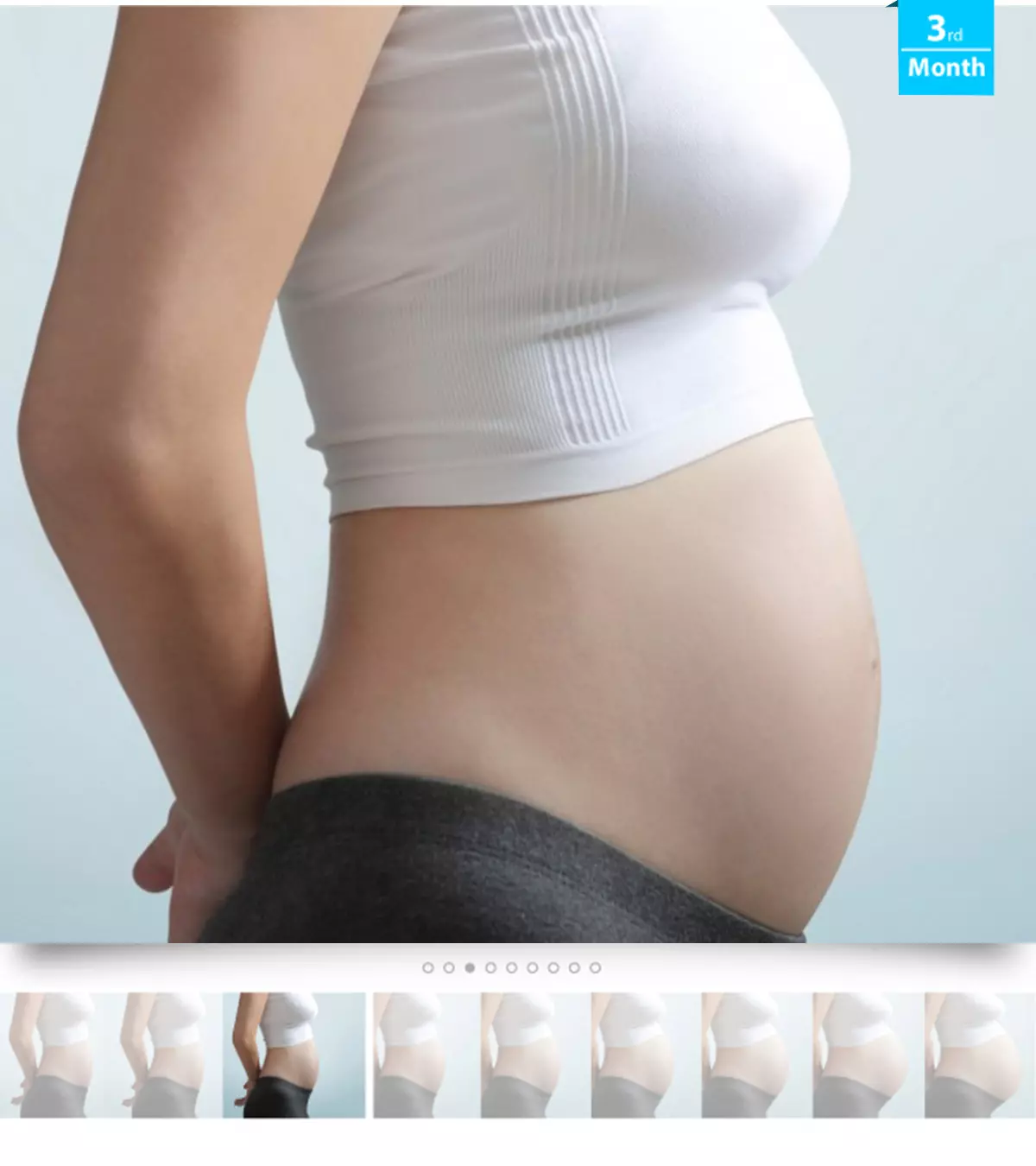
Image: Shutterstock
If you are three months pregnant, it is the completion of your first trimester. Your body and your baby’s growth will undergo significant changes this month. However, your pregnancy journey has a long way to go. You should start prenatal check-ups in the third month and keep up with your prenatal care.
This post discusses the precautions you should take, the physical changes you should expect, and your baby’s growth throughout the third month of pregnancy.
Key Pointers
- Third month of pregnancy sets in various signs and symptoms including fatigue, mood swings, and cravings.
- You should eat well, be active, and take rest to enjoy a smooth pregnancy.
- Ensure getting the third-month pregnancy tests done.
What are the symptoms and physical changes in the third month of pregnancy?
You might notice the following pregnancy symptoms and changes in your body during the third month.
Symptoms
- Morning sickness: By the third month of pregnancy your nausea and vomiting could peak, but by the end of the month, it usually comes down. Most pregnant women come out of nausea by the end of the first trimester (1).
- Fatigue: During pregnancy, the change in the hormonal levels makes you feel sleepy and tired. Since the body requires extra blood to supply the essential nutrients to the fetus, it affects the blood pressure and blood sugar levels making you feel fatigued.
- Frequent urination: You have an urge to urinate more often than before as your body produces the pregnancy hormone hCG. An increase in the blood volume puts pressure on your kidneys. Also, the growing uterus puts pressure on the bladder, thus increasing your urge to pee more often (2). Before requesting your doctor, you should understand the difference between having pain during urination and frequent but not painful peeing even if it’s urgent.
- Constipation: Increase in the levels of progesteroneiA female reproductive hormone that plays a vital role in menstruation, pregnancy, and breastfeeding hormone could slow down the digestion process. Improper diet can also be a reason for constipation. That’s why you have to drink a lot of water to humidify your stools.
 Point to consider
Point to consider- Vaginal discharge: You might notice a slight increase in the vaginal discharge due to high estrogeniA sex hormone responsible for the development of female sexual characteristics levels. The off-white, mucus discharge helps prevent any infections from passing through the vagina into the uterus. Avoid douching to clean the area as it may cause irritation and infections.
- Backache and abdominal pain: Change in the hormonal levels also gives you back pain (3). Moreover, the growing uterus stretches your ligaments and tendons, making you feel the pain in the lower abdomen. Some low-impact exercises and stretching will help ease the pain. However, consult a doctor before beginning on any exercises during pregnancy.
- Mood swings: You may experience mood swings due to the hormonal changes during the third month. Some women might turn calm and peaceful while it could be an emotional rollercoaster ride for some others.
- Distaste or craving for food: To develop a craving or to dislike the taste or smell of certain foods is quite common to experience during this period.
You need not have to worry about the above issues if they are mild because minor health problems are as common as physical changes that happen during this time.
Izrin, a mom and blogger, recalls her pregnancy journey and shares the symptoms she experienced during the 3rd month of gestation. She says, “I had terrible back pain, nausea all the time, I could not smell food, but believe me, you’d feel better if you could vomit it out. Lower abdominal area was still very much in pain. Fatigue? If you haven’t gone through this stage, you’d never be able to imagine the fatigue a pregnant woman can get (i).”
It’s important to remember that these symptoms and their intensity can vary from person to person. Do not hesitate to contact your healthcare provider if you experience pain or discomfort. If you are experiencing severe symptoms such as heavy bleeding, intense abdominal pain, or persistent nausea, seek medical care immediately. Remember, regular check-ups and close monitoring are vital for your and your baby’s welfare.
Physical changes by the end of the first trimester
While the body does undergo a lot of changes, the first change would be your belly size. So, that brings us to the question…
How big is your belly in the third month?
By the third month of pregnancy, your uterus is about the size of a grapefruit. It is lifted up into the abdomen area and covers the whole pelvic area (4).

Besides the belly, there are other physical changes as mentioned below.
- Breasts become tender: Your breasts might become tender and heavy as your body prepares for breastfeeding. Moreover, the breast size increases and the areola becomes darker and larger.
- Veins are visible: As the blood volume increases in your body and your heart pumps faster, they make the veins more prominent on your breasts (5).
- You gain weight: By the third month, you will gain some weight. But you also could lose weight if you don’t eat too much or if you vomit everything you enter your mouth. But inside the womb, there is a little life growing month by month.
Baby’s Development In The Third Month Of Pregnancy
You can feel and experience the changes happening to your body but it is too early to feel the baby’s movement in the third month. In the absence of any signals from your baby, you might be curious to know what is happening inside. Here, we help you imagine about your baby.
 Quick fact
Quick factHow Big Is Your Baby In The Third Month?
By the third month, your baby is the size of a ripe plum (6).

At the end of the third month, your baby is about 3.5 inches long and weighs around 1.5 ounces (7). Let’s now see how the various parts are developing in this month.
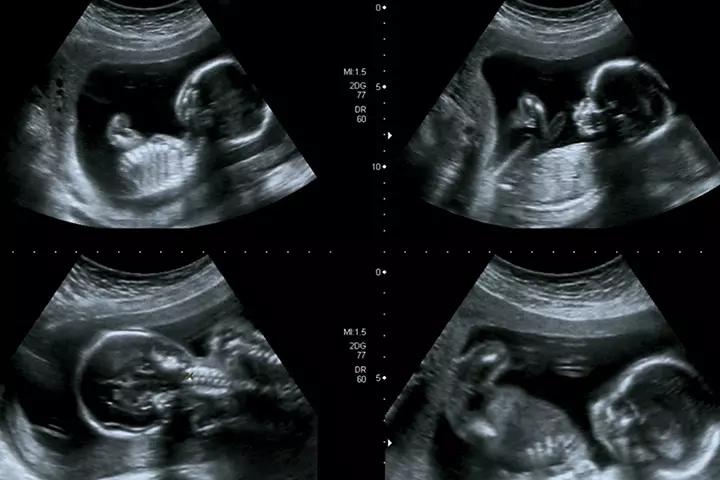
By this time, the embryo gets settled inside the uterus and the organs start developing:
| Body parts | Developmental stage |
|---|---|
| Head | looks larger than the body as the brain is developing (8) |
| Skin | The veins are visible through the transparent skin. Also, your baby’s fingerprints are formed (9) |
| Eyelids | are formed and cover the eyes, offering them complete protection |
| Mouth | tongue and the larynx are developing; the upper lip is being formed and the jaws are in place |
| Thumb | the baby starts sucking its thumb and gets hiccups |
| Heart | develops during this time and the heartbeats can be heard electronically |
| Musculoskeletal system | the muscles and bones of your baby get organized |
| Movements | Your baby starts kicking, stretching, twisting, and turning by this time. You may not feel the movement because the uterus still lies over the pelvis |
| Bone marrow | starts producing its own white blood cells, which helps it stay healthy |
| Intestine | starts contracting and relaxing, which is a practice for healthy digestion |
| Pancreas. | the pancreas starts functioning and secretes insulin |
| Kidneys | are developed by now and start excreting urine into the bladder |
| Other parts | fingers and toes are clearly distinct with fingernails and toenails. Ears and nose are visible. The nipples and hair follicles begin to form while the neck is taking shape |
If you are carrying twins, the development of the twin fetuses will be the same as above.
Third month is also the time when your regular doctor-visits begin.
What To Expect During Your Ob/Gyn Visit?
Your doctor will take details of your health history and that of your parents’. They will ask you about any conditions that you must have suffered in the past. Also:
- Your weight and blood pressure are checked.
- The doctor will measure the size of the abdomen to estimate the size and the fundal heightiDistance from the pubic bone to the top of the uterus of the uterus.
Lab tests
- A urine test to estimate sugar and protein level and to check for infections.
- A blood sample is collected to detect your blood type and Rh factor, and to check for anemia and diabetes mellitus. First-trimester screening
- Nuchal translucency (NT) ultrasound test is done to examine the thickness of the fluid in the area at the back of the fetal neck. Also known as the ‘12-week scan,’ the test assesses any risk of abnormality in the fetus (10). If the thickness of the fluid is more than normal, it could indicate chromosomal conditions such as Down syndrome and trisomyiA condition when a person has three instead of the usual two chromosomes in a pair 13 and trisomy 18.
- Maternal serum (blood) tests are two tests used to determine two substances in the blood — pregnancy-associated plasma protein screening (PAPP-A) and human chorionic gonadotropin (hCG)iA hormone produced by the placenta during pregnancy to sustain the pregnancy and nourish the fertilized egg .
- PAPP-A determines the abnormal levels of a protein produced by the placenta in early pregnancy, to assess the risk of chromosomal abnormalities.
- HCG levels help indicate if the pregnancy is progressing normally.
- Chorionic villus sampling (CVS) is another test carried out in the 11th week of pregnancy to check for Down syndrome or any other chromosomal abnormalities. During the procedure, a small tissue sample is collected from the placenta for analysis (11).
While these are the tests done by collecting urine, blood or placental samples, the ultrasound is done to have a look at the fetus – your first glimpse of your baby.
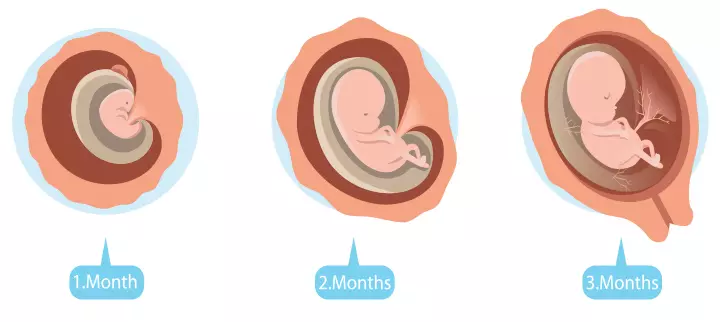
Is It Possible To Detect Neural Tube Defect During The Third Month?
The ultrasound scanning helps measure the amniotic fluid parameters and the position of the placenta in the uterus.
Is it possible to detect neural tube defect during the third month?
It is possible to detect spina bifida through ultrasound in 3rd-month pregnancy.
Spina bifida or neural tube defect (NTD) is a congenital malformation where the neural tube around the spine fails to close due to genetic and environmental factors. According to the US Centers for Disease Control and Prevention (CDC), more than 300,000 babies worldwide are born with a neural tube defect each year (12). Its timely detection is vital to improve the outcomes for the mother and the affected fetus.
Generally, NTD can be detected during the first trimester but it is more accurate in the second trimester (13).
Tests and ultrasound scans are done to detect any health risks for you and the baby. A healthy mother gives birth to a healthy baby. Therefore, it is needless to say that you need to take care of your health during the nine months leading to the birth of your baby.
12 To-Do Tips For A Healthy Third-Month Pregnancy
With the morning sickness gone, this is a good time to focus on healthy eating and being fit. Here is a list of things you should do to make your 3rd month pregnancy diet well-balanced and wholesome.
- Eat well: Your craving increases for some foods. Relish on a healthy and balanced diet, which includes fruits and vegetables, eggs, pulses, nuts, meat, milk, whole grain varieties, yogurt, etc. Your diet must be enriched with all the essential nutrients such as vitamins, omega-3 fatty acids, calcium, and fiber.
- Take rest: You will start feeling fatigued; therefore, take rest as much as you can. Avoid sleeping on your back and sleep preferably on your left side or right. You might want to use specially designed maternity pillows to sleep comfortably.
- Take supplements: Continue to take folic acid supplements during the third month as they are important to avoid any birth defects in the baby. If your doctor has prescribed any other prenatal vitamin supplements, you need to take them too.
- Maintain hygiene: Ensure hygiene around you and in all that you eat and use. Be careful about the foods that pose the risk of bacterial infections. Wash the fruits and vegetables thoroughly to remove any dirt. Wear gloves while gardening and cleaning pet litter. Also, make sure to keep the vaginal area clean and dry all the time.
- Dental check-up: Get a regular dental check-up as you are prone to gum bleeding due hormonal changes during this period. Use a soft toothbrush for brushing your teeth.
- Childbirth education: Enroll in childbirth classes during this time. It will help you to cope with stress, anxiety, and mood swings.
- Communicate: This is crucial during pregnancy. You need to communicate with your partner and family if you are going through stress. Also, speak to your obstetrician about any emotional upheavals, lack of sleep, fears and anxieties, the feeling of loneliness, and the like.
- Quit smoking and drinking: Avoid nicotine and alcohol prior to and during pregnancy as they can reach your baby through the bloodstream. Moreover, they can lead to a miscarriage.
- Cut down on caffeine intake: Too much caffeine increases the risk of miscarriages and low-birth weight. You may take up to 12oz per day.
- Be active: Indulge in activities that de-stress you. Start looking for baby names, review dresses for the baby shower, prepare a baby registry list. Take your pictures showing your baby bump to look for monthly or weekly changes and create an album or a short movie for a lifetime memory. You may also start journaling your pregnancy journey to track your experiences.
- Exercise: Engage yourself in low-density exercises like walking and swimming. It helps you stay healthy and cope with the physical changes. However, check with your doctor before beginning any exercise. Avoid any sports that carry a risk of falls and stress on joints.
- Drink a lot of water: Adequate water or infusions will hydrate your body and make all your systems work well (digestive transit, urinary system, skin…). Avoid soda, and sugar added beverages and don’t drink too much tea or coffee
Before you begin exercising, it is important to know about the workouts that are safe for you during this phase.
Exercises you can do in the third month
Here are a few exercises you can do to stay fit during the third month. Consult your doctor before starting any exercise to ensure that these activities are safe for your pregnancy. It is important to remember that every woman is different, and so does their pregnancy. Therefore, personal guidance is important.
Note: Wear breathable clothes and supportive bras while exercising.
- If you are having fatigue and morning sickness, then a morning walk is the best and refreshing exercise for you. It helps uplift your mood and increases the blood flow in the body.
- Swimming stretches and tones your muscles and increases blood circulation (14) .
- Pilates builds strength and helps increase flexibility during pregnancy.
- Low-impact aerobics strengthen the heart, tone the muscles, and provide you relief from body aches.
- You can perform certain yoga asanas that are safe for you and your baby. Attend professional yoga classes rather than doing at home without any guidance.
If you follow the right diet and exercises, the third month gets completed smoothly, paving the way for a disciplined routine throughout your pregnancy.
However, along with the things to do, there are some things that you should not do during the third month.
Don’ts During Third-Month Pregnancy
If you are doing any of these activities, then stop doing them now:
- Avoid lifting heavy objects and indulging in stressful activities that can put pressure on the womb.
- Avoid oily and spicy foods as they can trigger nausea, gas, and indigestion.
- Avoid wearing tight clothes as they cause discomfort because of the growing bump.
- Make sure to wear comfortable footwear. Go for flats.
- Quit drugs as they can severely affect fetal development.
 Be watchful
Be watchful You will get the motivation to do the right things and not do the wrong ones, if you can get your partner also involved in it.
Tips For Dad-To-Be
Pregnancy is the responsibility of the dad-to-be as well. Take care of your wife during this time and you will be glad you did that. Here are some tips for a dad-to-be:
- Your partner must be feeling weak. Offer your support by assisting with household tasks.
- She might cut down her social interactions to take care of herself; therefore, you can support her by being around and indulging in some pregnancy planning.
- She might experience mood swings due to hormonal changes. Make her feel good by being positive, and supportive.
- You will want to feel your baby’s movement. Though it is too early for that, you could make your baby familiar with your voice.
- Plan a babymoon vacation and enjoy this special time with your partner.
The third month is a crucial time in your pregnancy. The end of the first trimester usually ends several of your early pregnancy problems such as nausea, vomiting, and fatigue. It gives a shape to your pregnancy and that is why elders suggest that we need to wait till the third month before making the announcement.
Let’s now answer some questions that might be coming up on your mind frequently.
Frequently Asked Questions
1. How much weight should you gain in the third month of pregnancy?
You are likely to gain 2-4 pounds (1 to 2kg) by the end of third month (8). Since the baby is still small, you need not have to gain weight more than this. However, some women may lose weight due to food aversions and morning sickness.
2. If I am three months pregnant, when is my due date?
The due date is calculated by adding 40 weeks to the first day of your last period. So, if you are three months pregnant now (12 weeks), you will be delivering your baby about 28 weeks later.
3. What are the chances of miscarriage at three months pregnant?
According to studies, the chances of miscarriage are the highest during the first trimester, i.e., the first three months of pregnancy. The risk of miscarrying significantly decreases after 12 weeks into gestation (18).
4. Can a three month pregnant woman lay on her stomach?
You may lay on your stomach in early pregnancy. However, once your bump grows, sleeping on your stomach will likely become uncomfortable. Besides, sleeping on the stomach is generally recommended to be avoided to avoid any unwanted complications (19).
5. Can I know the gender at three months pregnant?
Ultrasounds may help determine the gender of your baby with relative certainty after 20 weeks of gestation (20).
Do you have any more questions to ask? Let us know in the comment section below.
Infographic: Care To Take During Third Month Of Pregnancy
The third month of pregnancy is crucial as you are ready to enter the second trimester. Most women start to feel their baby’s first movements during this month. So, follow the tips and precautions in the infographic below to ensure a healthy pregnancy. Illustration: Momjunction Design Team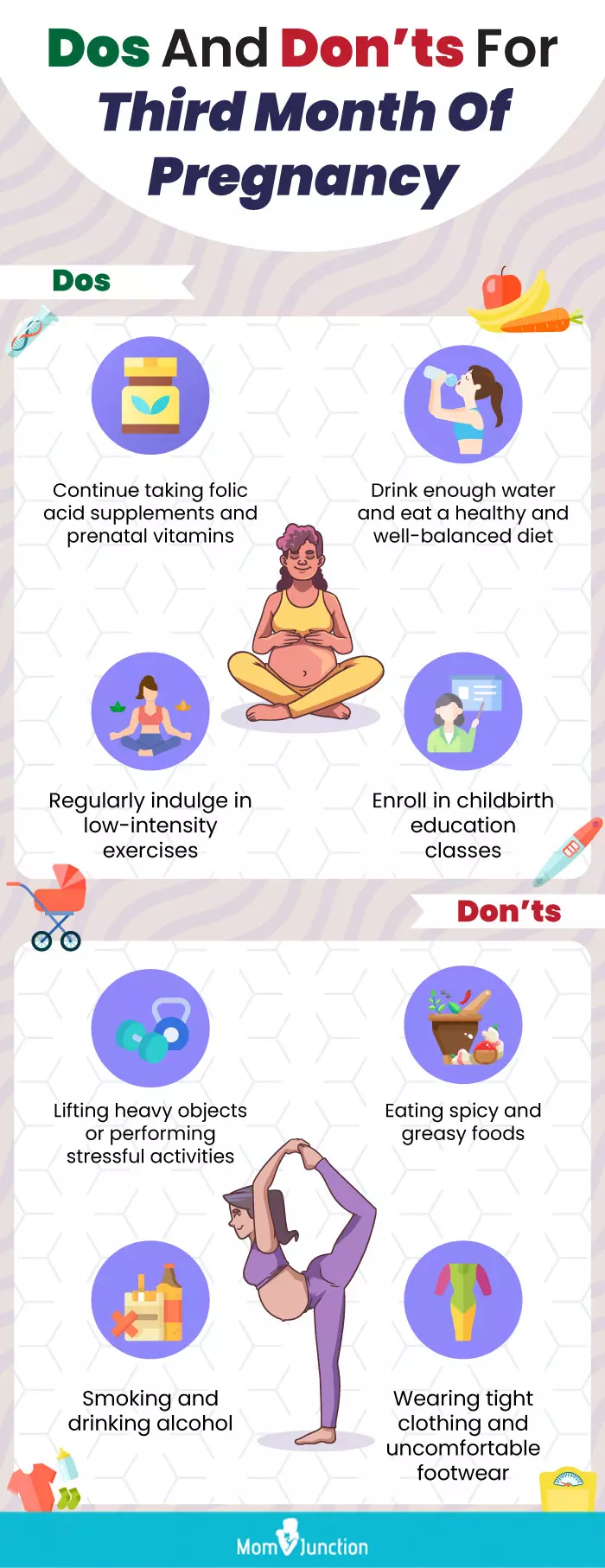
Illustration: 3rd Month Pregnancy: Development Ultrasound & Exercises To Do
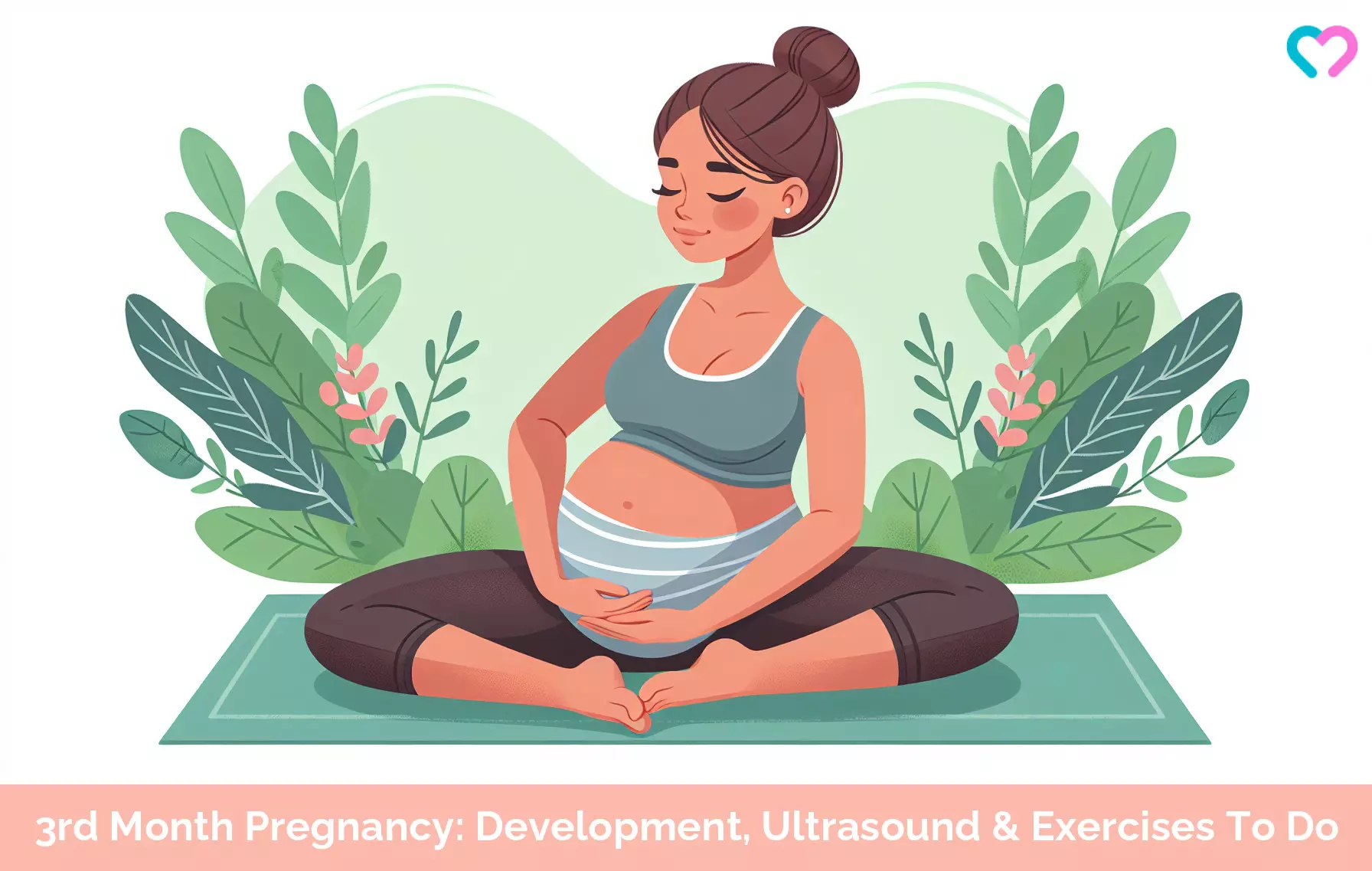
Image: Dall·E/MomJunction Design Team
Personal Experience: Source
MomJunction articles include first-hand experiences to provide you with better insights through real-life narratives. Here are the sources of personal accounts referenced in this article.
i. Pregnancy 3rd month and 2nd trimester.https://bijanstreet.blogspot.com/2012/11/pregnancy-3rd-month-and-2nd-trimester.html
References
- Morning sickness.
https://www.pregnancybirthbaby.org.au/dealing-with-morning-sickness - Common Physical Changes During Pregnancy.
https://www.healthywomen.org/your-health/pregnancy–postpartum/common-physical-changes-during-pregnancy - Pregnancy Discomforts: Back Pain Round Ligament Pain Nausea.
https://my.clevelandclinic.org/health/articles/pregnancy-pains - Your Body Throughout Pregnancy.
https://nationalpartnership.org/childbirthconnection/healthy-pregnancy/your-body-throughout-pregnancy/ - Signs and symptoms of pregnancy.
https://www.nhs.uk/pregnancy/trying-for-a-baby/signs-and-symptoms-of-pregnancy/ - How big is your baby?
https://www.pregnancybirthbaby.org.au/how-big-is-your-baby-infographic - Stages of Fetal Development – First Trimester.
https://ldh.la.gov/page/stages-of-fetal-development-first-trimester - Managing your weight gain during pregnancy.
https://medlineplus.gov/ency/patientinstructions/000603.htm - Fetal development.
https://medlineplus.gov/ency/article/002398.htm - Fetal Development Milestones.
https://carenetsomd.org/fetal-development-milestones/ - Screening for Down syndrome.
https://www.pregnancybirthbaby.org.au/screening-for-down-syndrome - Flores AL et al.; (2014); Global Burden of Neural Tube Defects Risk Factors and Prevention.
https://stacks.cdc.gov/view/cdc/31860 - Sara Masihi et al.; (2012); Detection of neural tube defect in the first and second trimester of pregnancy by ultrasound in Imam Hospital Ahwaz between December 2008-2010.
https://www.ncbi.nlm.nih.gov/pmc/articles/PMC4169848/ - Water Exercise For Pregnant Women
https://awhonnconnections.org/2016/08/02/water-exercise-for-pregnant-women/ - Rachelle A. Pretorius and Debra J. Palmer; (2021); High-Fiber Diet during Pregnancy Characterized by More Fruit and Vegetable Consumption
https://www.ncbi.nlm.nih.gov/pmc/articles/PMC7824257/ - Fetal Development: Stages of Growth.
https://my.clevelandclinic.org/health/articles/7247-fetal-development-stages-of-growth - First Trimester.
https://my.clevelandclinic.org/health/articles/9699-first-trimester - Miscarriage.
https://www.ncbi.nlm.nih.gov/books/NBK532992/ - Sleep position in pregnancy Q&A
https://www.tommys.org/pregnancy-information/im-pregnant/sleep-side/sleep-position-pregnancy-qa - Knowing Baby’s Sex Before Birth: Some Pros and Cons of Gender Reveal
https://americanpregnancy.org/healthy-pregnancy/pregnancy-products-tests/knowing-babys-sex-before-birth-some-pros-and-cons-of-gender-reveal/
Community Experiences
Join the conversation and become a part of our nurturing community! Share your stories, experiences, and insights to connect with fellow parents.
Read full bio of Dr. Ben Abbes Taarji Hicham
Read full bio of shreeja pillai
Read full bio of Rebecca Malachi
Read full bio of Aneesha Amonz












